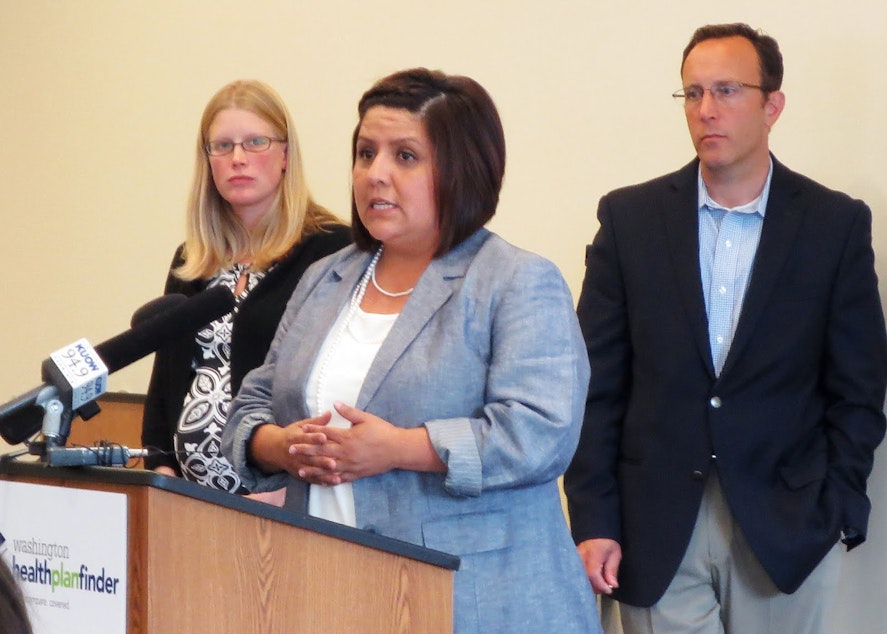How Do You Say "Coverage Is Here" In 34 Languages?

This week state and county officials met with local ethnic media. They hope the media will help them get the word out to non-English speakers about health care changes coming this fall.
The briefing was part of a statewide campaign to let consumers know that beginning in October, there will be 31 new health plans available for purchase at the state’s online marketplace. But the challenge for organizers will be more than just language barriers.
The campaign slogan is “Coverage is here.” Try translating that slogan into 34 languages — the number of languages spoken in King County. Many of the reporters at this briefing said that’s hard to convey in just a few words.
Mohamud Yussuf gave it a try anyway. Yussuf is editor in chief of the Runta, an African-Somali newspaper. In his native language, Somali, he would say something like, “Health insurance will start soon.” Seattle Univision’s Teresa Jones said she would start with a question: “Would you like to take care of your family’s health? There’s opportunity.”
State officials will be relying on media representatives like Jones and Yussuf to get their message out and maybe encourage people to enroll. Jones said she appreciates the state’s effort to reach out to the minority communities. There’s so much information to absorb. “If it’s even confusing for a North American who grew up in this country,” she said, "imagine somebody who’s never had access to this type of health care or maybe just got their papers for living in this country; it’s a huge task.”
It’s estimated that one in six residents in King County is uninsured. More than half are people of color. Based on the latest census data, many of them live in South King County.
For organizers reaching out to these communities, language might be the easy part. A bigger challenge will be explaining concepts like insurance. Yussuf said that in Somalia, citizens don’t need insurance for health care. “You just walk into the hospital, and you’re cared for very easily because you’re a citizen,” he said. “It’s something like you have a right to service whenever you need it.”
Yussuf said most people in his community are low income. One of the first things they’ll want to know is what these health plans will cost them.
Organizers are translating materials into different languages. Then they’ll take a personal approach to deliver the information. In the coming months they’ll be going out to churches, libraries and places where people gather or socialize to meet with people face to face.

